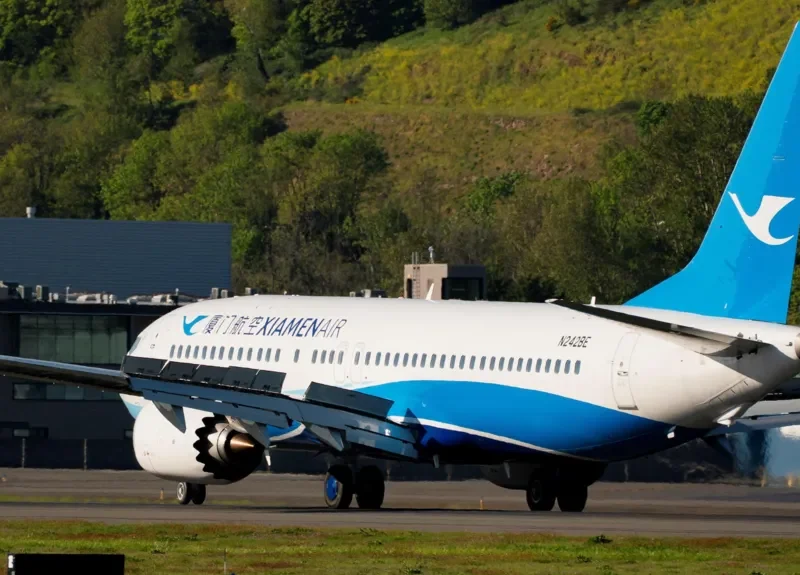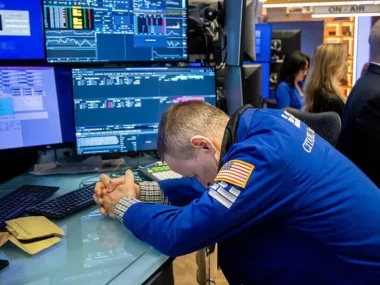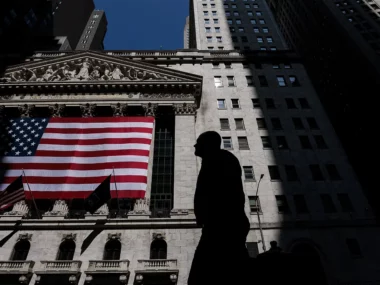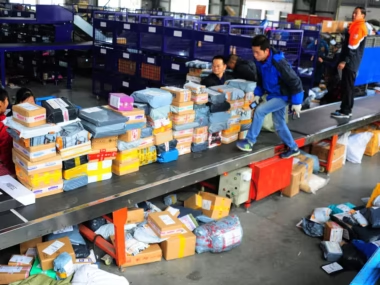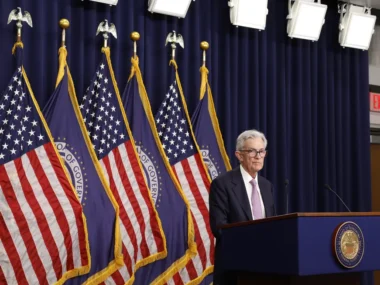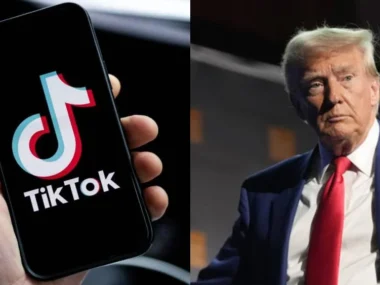China has returned aircraft ordered from the US in response to Trump’s tariffs, according to Boeing’s CEO. Kelly Ortberg confirmed that two planes had already been sent back, with another expected to follow as trade tensions between the nations intensified. Ortberg also stated that 50 additional planes were scheduled for delivery to China this year, but Chinese customers have signaled they will refuse to accept them. In retaliation for the 145% tariffs imposed by the US on Chinese imports, China implemented a 125% tax on US goods.

A Boeing 737 MAX 8, the second aircraft meant for a Chinese airline, is seen flying mid-air before landing at Boeing Field, as it is returned to its manufacturer.
Speaking from the Oval Office on Tuesday, Trump expressed optimism about improving trade relations with China, stating that the tariffs he had imposed would “come down substantially, but it won’t be zero.”
However, Boeing CEO Kelly Ortberg noted that China had stopped accepting aircraft deliveries due to the tariff situation. Boeing, the largest exporter in the US, with around 70% of its commercial aircraft sales abroad, is now considering options to re-market 41 already completed planes to other customers, as there is strong demand from other airlines.
Ortberg mentioned that nine planes were not yet in Boeing’s production pipeline, and the company plans to assess their status, potentially assigning them to other buyers. He also emphasized that Boeing would not continue producing aircraft for customers unwilling to accept them.
Boeing is in regular communication with Trump’s team.
In the afternoon, Mr. Ortberg informed an investor call, “Not a single day goes by without us being engaged with either cabinet secretaries or President Trump himself regarding the ongoing trade war between China and the U.S.” He expressed optimism about the potential for negotiations.
On Wednesday, U.S. Treasury Secretary Scott Bessent mentioned at the International Monetary Fund (IMF) conference that there was a chance for a “big deal” on trade between the U.S. and China. When asked about an upcoming meeting between the nations, Bessent described it as an “incredible opportunity” to reach an agreement, provided China was “serious” about reducing its reliance on manufacturing exports.
Mr. Ortberg also highlighted that others in Boeing’s supply chain, particularly in Japan and Italy, were now affected by tariffs, as universal tariffs of 10% were being imposed.
During the call, Boeing’s CFO Brian West emphasized, “Free trade policy is very important to us,” noting that Boeing would continue collaborating with suppliers to ensure continuity.
Boeing reported smaller losses for the first quarter of the year, driven by an increase in plane manufacturing and deliveries. Production had dropped in 2024 due to several crises, including a strike by around 30,000 U.S. factory workers. The company plans to ramp up production of its 737 MAX jets to 38 per month in 2025.

